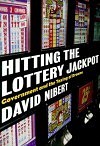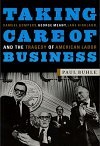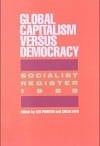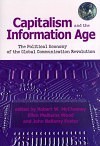
The Age of Imperialism: The Economics of U.S. Foreign Policy
Magdoff’s analysis is the foundation upon which the work of an entire tradition of Monthly Review authors rests. | more…

Magdoff’s analysis is the foundation upon which the work of an entire tradition of Monthly Review authors rests. | more…

This new edition updates a highly acclaimed work with an analysis of the most recent developments in welfare “reform” and welfare rights activism. Drawing on first-hand reports of women forced to leave welfare and other newly available data, Mimi Abramovitz documents the impact of this historic change in public policy on the lives of poor single mothers and their children. She punctures the highly publicized claims that equate successful reform with shrunken rolls, showing that if the reformers set out to improve the lives of women and children, something went dangerously awry. Abramovitz argues that welfare reform has penalized single motherhood; exposed poor women to the risks of hunger, homelessness, and male violence; swept them into low-paid jobs, and left many former recipients unable to make ends meet. | more…

Hitting the Lottery Jackpot is a timely critique of the economic and social costs of state reliance on lotteries to generate public revenues. David Nibert highlights the conflicting role of the state as gambling promoter to show who really profits—advertising agencies, TV stations, and ticket vendors—with less than half the money wagered returned as prizes. Hitting the Lottery Jackpotalso shows who loses: lower-income groups and people of color, who spend a much higher percentage of their income on lotteries than others. | more…

The first comprehensive history of American labor leadership in the twentieth century, this is a tale of tremendous hope and appalling treachery, stunning accomplishment and dramatic defeat. | more…

Written with droll wit and lyrical elegance, this visionary book challenges the chorus of resignation—the notion that there is no alternative, that profit is the best relationship between people, and that the market guarantees democracy. Daniel Singer insists that a more free and egalitarian society can be won, and he predicts that the new millennium will be an age of confrontation, not consensus, with Western Europe as a probable first battlefield. | more…

First published in London in 1848, the Communist Manifesto is one of the most important books of all time: a document which helped to define the emerging socialist movement, altered the course of world history, and is universally acknowledged to be a cornerstone of modern social thought. | more…

“Globalization” has come to define our age. Stock market fluctuations, the fortunes of political administrations, and conditions for working people—all rise and fall with the tide of global capital flow. | more…

Town-building in the Great Plains gets a fresh examination in Harris Stone’s final book. Form and consequences of the inhabitation of the plains landscape are explored, from the rural roads and farms to industrial parks. Beautifully hand-lettered and illustrated throughout, this thought-provoking work will appeal to architects, planners, historians, cultural geographers, and anyone interested in the interplay between people and vernacular form. | more…

Not a day goes by that we don’t see a news clip, hear a radio report, or read an article heralding the miraculous new technologies of the information age. The communication revolution associated with these technologies is often heralded as the key to a new age of “globalization.” How is all of this reshaping the labor force, transforming communications, changing the potential for democracy, and altering the course of history itself? Capitalism and the Information Age presents a rigorous examination of some of the most crucial problems and possibilities of these novel technologies. | more…

The announced subject of this conference is “New Trends in Turkey and the World.” I shall not try to say anything about new trends in Turkey, partly because of my ignorance but more importantly because Turkey is very much part of the world, and in this period the mother of all new trends is global in nature. To understand what is happening in any part of the world, one must start from what is happening in the whole world. Never has Hegel’s dictum “The Truth is in the Whole” been as true and relevant as it is today. | more…

In my opinion, American capitalism no longer has any use for, let’s say, 40 percent of the population. These are the descendants of folks who were brought over here in one way or another during the period of capital accumulation. They’re now superfluous human beings. | more…

Samir Amin, one of the most influential economists today, has produced another groundbreaking work. Spectres of Capitalism cuts through the current intellectual fashions that assume a global capitalist triumph, taking the occasion of the 150th anniversary of Marx and Engels’s classic tract, the Communist Manifesto, to focus upon the aspirations of the destitute millions of the post-Cold War era. | more…
Notifications